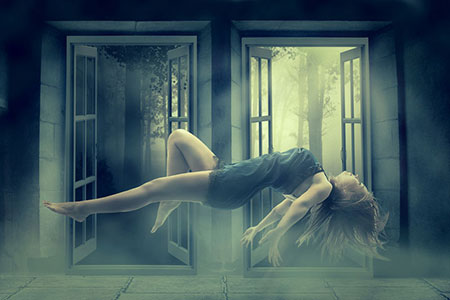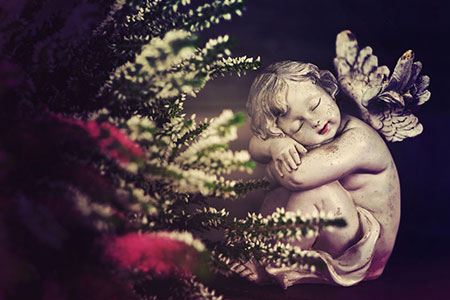siblings
Telepathy Can Be Child’s Play!
 Some psychics use ‘mind reading’ or telepathy in their work. Telepathy is communication between two minds, during which one or both people can perceive each other’s thoughts. Can it really happen? Does it really happen? Well, I know for a fact that it does.
Some psychics use ‘mind reading’ or telepathy in their work. Telepathy is communication between two minds, during which one or both people can perceive each other’s thoughts. Can it really happen? Does it really happen? Well, I know for a fact that it does.
Have you ever thought of someone who is many miles away, and all of a sudden the phones rings and the call is from that person who you where thinking about? At one time or another we all experience telepathy in some way.
When I was a boy, my older brother Mike and I would try to read each other’s minds using telepathic communication. We would try to sense what kind of ice cream the other would like to have. One would be the sender and the other the receiver.
My brother and I did our little experiment with an open mind and a non-judgmental attitude. It helped that we were growing up in a psychic-friendly family who lived in a real haunted house. Trust me you need an open mind and attitude to do that! We gave it a hundred percent effort, even with the many household distractions around us. It was summer time, but we would use our winter ear muffs to block any noise that might get in the way.
One of the biggest challenges for me was to learn to relax physically. It was difficult at first, but I soon learned to overcome it, mostly by breathing deeply. Eventually, when I was completely calm and relaxed, I was be ready. Then I would shut my eyes clear my mind and try to visualize what the object might be that my brother was be thinking of. We used my mother’s egg timer to make sure we would not overdo it.
Telepathic connection is believed to be stronger between family members than strangers, especially between mothers and children, and siblings, especially twins. For example, in 1942 zoologist and geneticist Horatio Newman published a book titled Twins and Super-Twins, in which he cites several examples of telepathy between twins.
Grandma’s Love Was The Best
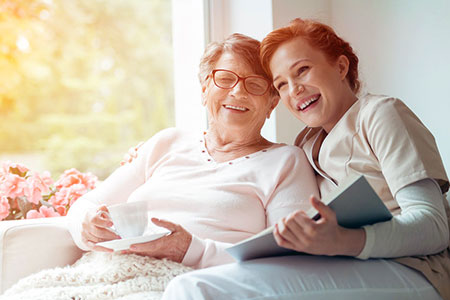 I remember what Grandma was wearing when she passed away. I also recall exactly what she said and everything else that happened that day, right down to the violets I picked in the backyard to place in her hand. She was wearing an oversized Winnie the Pooh T-shirt that could have been a night dress, I’m not sure. She had her red robe on and black slippers lined with greyish fluff.
I remember what Grandma was wearing when she passed away. I also recall exactly what she said and everything else that happened that day, right down to the violets I picked in the backyard to place in her hand. She was wearing an oversized Winnie the Pooh T-shirt that could have been a night dress, I’m not sure. She had her red robe on and black slippers lined with greyish fluff.
She was told she was being taken to the nursing home, but it was actually hospice she would be going to. She could no longer walk and had fallen, and no one was able to pick her up. Not even myself. I wish I could, but I just was not able to.
I sensed she wasn’t to going be with us very much, and I was very upset about it. But constantly having to give her blood transfusions and her being in so much pain, it was the right decision at the time. I have made peace with that now.
Settling her into the hospice, Grandma was adamant the bed be taken out, as it was unbearably uncomfortable. She kept saying, “I just want to go home and die. This is no way to live. I’m ready to go.” She also told me, if I ever needed her after she had gone, all I would have to do is call her name, and she would be there for me. Grandma kept her promise to me. To this day I still feel her around me all the time, especially when I think of her and call her name.
I think the worst thing I ever experienced in my entire life was walking into that hospice room after she had passed and seeing her shell of a body. She was no longer there, obviously, but she was still around. I felt she was somewhere in the room looking at us and saying her goodbyes.
Pain had made her very bitter towards the end of her life. She wasn’t herself anymore because she was on so many different strong medications and invasive treatments. I sensed that she longed to be with her departed husband and her dear mother who passed when she was just a young girl. Her mom was also a psychic and apparently really good with things like Numerology and dreaming lucky numbers. I loved hearing all those stories.
Birth Order And The Empath
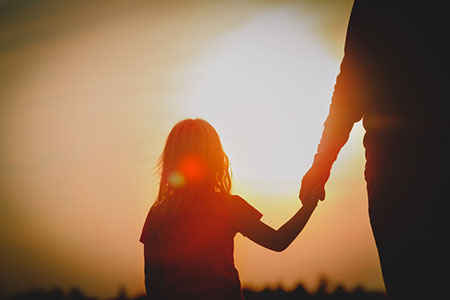 Most of us are familiar with the notion that the personality traits of the firstborn are typically different from the middle sibling, or the youngest child in the family, and so on. But many empaths do not realize how they may be impacted by their birth order in the family.
Most of us are familiar with the notion that the personality traits of the firstborn are typically different from the middle sibling, or the youngest child in the family, and so on. But many empaths do not realize how they may be impacted by their birth order in the family.
In The Birth Order Book, author Kevin Lemar gives a detailed outline of these so-called ‘birth order’ characteristics and qualities.
Firstborns, as well as only children, for example, are often associated with leadership attributes and stronger personalities, along with being more protective, fearless, and reliable than their siblings. However, the firstborn may also exhibit some less desirable traits, such as being controlling, bossy and impatient.
The middle-born tend to be social butterflies and peacekeepers, who are focused on fairness and keeping everyone happy. The youngest-born tend to be fun-loving, outgoing, creative, free spirited and can be adept at manipulating others to do things for them.
Only children tend to be mature for their age, perfectionistic and conscientious, but may feel the burden of high parental expectations.
The Firstborn Empath
My experience with empaths has been that the firstborn and only child empaths are indeed more protective, fearless, independent, reliable, but in the empath these protective instincts are magnified tenfold.
They also tend to feel it is their responsibility to solve every human problem and protect everyone around them, regardless. I often see a very enhanced sense of responsibility.
Spirit Says You Can’t Please Everyone
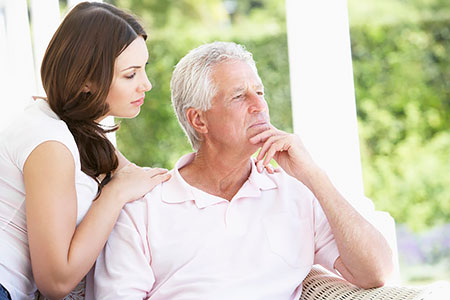 I have learned that people-pleasing is something that one simply cannot do. People must learn to do it for themselves. We cannot please everyone all of the time, and some people will never be satisfied anyway, no matter how much time, energy and love we offer them. They are simply not ever going to be happy, no matter what. Period.
I have learned that people-pleasing is something that one simply cannot do. People must learn to do it for themselves. We cannot please everyone all of the time, and some people will never be satisfied anyway, no matter how much time, energy and love we offer them. They are simply not ever going to be happy, no matter what. Period.
I can think of various situations where one might feel the need to coddle and people-please those we love and care for, but in the end it will only bring us self dis-ease and stress.
For example, the child who tries to please and be there and do everything for the parent. Why is this a bad idea? Well, the parent may give up if their child tries to do everything for them. Especially if they are older and trying to find themselves and re-establish their own life, after taking care of everyone else their whole life.
Sometimes we can smother an ageing parent with kindness, by trying to do too much for them. When we do this, it makes them second guess their ability to do things for themselves. It may even cause them to worry, have anxiety, or become fearful of living.
It is good to be there for one’s elderly parents, however there is a line that can be crossed if we try and do too much and make them feel like they cannot do certain things anymore. Sure, if their driver’s license has been taken from them, for example, and they cannot see well anymore, then obviously driving them places makes sense. But, if they are still able to function normally, then let them!
Take Back Your Power!
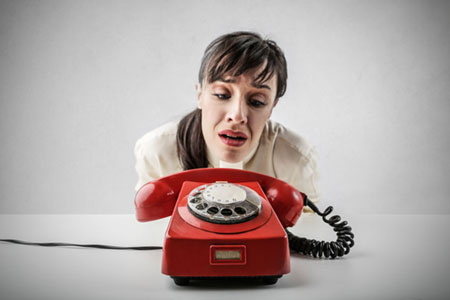 Everyone has a story to tell about their love life. And some of have extremely abusive stories to tell. One common element that I have come across frequently in my work, is the fact that some people are treated with disrespect and emotional abuse, and yet they are still patiently waiting for the abuser to return to them!
Everyone has a story to tell about their love life. And some of have extremely abusive stories to tell. One common element that I have come across frequently in my work, is the fact that some people are treated with disrespect and emotional abuse, and yet they are still patiently waiting for the abuser to return to them!
When you ask them why, it is usually because they “still love” that person. Well, that is not love. It is simply an imagined need that has been created by the abuser, or by one’s lack of self-worth. It is a psychological illusion, not real.
If you are still waiting for someone to come back into your life, after they left you for someone else, you are making yourself the second choice. You are degrading your own true value and taking away from your self-worth.
During a workshop I presented on this subject, I asked the participants to write down why they felt they needed that other person in their life. In essence, all their responses ended up being about lack of self-esteem, self-respect and self-security.
The next step was to ask them how they would you feel if they saw someone treating their daughter, or son, in the same way they have been allowing the abusive partner to treat them? They all said they wouldn’t tolerate it. They would intervene and get that person out of their lives, or at least try. One of the delegates even went as far as to say, “I would lock her in the house and never let her out again.” Which might be a great idea under the circumstances, but obviously not realistic!
